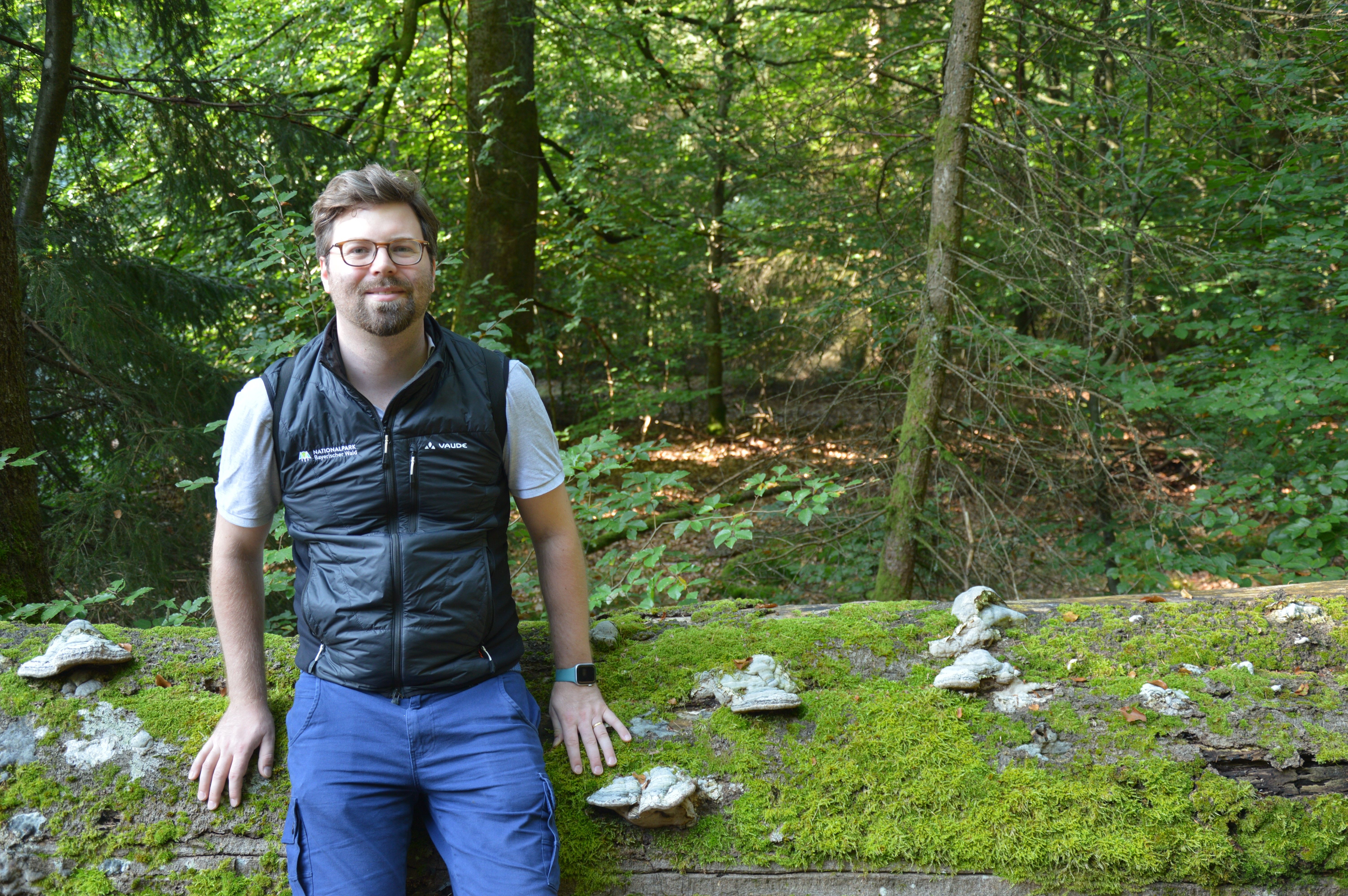- Institut OED
- Institut ZN
- Institut MBW
- Abt. für Didaktik
- Einrichtungen
- Forschung
- Forschungsthemen

Dr. Franz-Sebastian Krah
Publications: GoogleScholar
Publications & Reviews: Publons
For more information please visit: krah-ecology.org
Short CV
| Wissenschafterlicher Mitarbeiter (Post-Doc) | May 2020-present | Goethe-Universität Frankfurt |
| Research and Development Manager Artificial Intelligence | Nov. 2019-May 2020 | DFGE - Institut for Energy, Ecology and Economy |
| Wissenschafterlicher Mitarbeiter (Post-Doc) | Aug. 2019-Oct.2019 | Philipps-Universität Marburg |
| Dr.rer.nat. ("summa cum laude") | Nov. 2015-April 2019 | Technical University of Munich (TUM) |
| M.Sc. Biology ("with high destinction") | 2013-2015 | Technical University of Munich (TUM) |
| B.Sc. Forest Science and Resource Management | 2010-2013 | Technical University of Munich (TUM) |
| Magister Philosophy (midterm exam passed) | 2008-2010 | Ludwig-Maximilians-Universität (LMU) |
Research interest
Microorganisms contribute substantially to the functioning of terrestrial ecosystems, benefiting human well-being. However, our current knowledge in ecology is broadly substantiated by two centuries of animal and plant
research. My overall goal is to raise and advance our knowledge
of microorganismal community and functional ecology, with an emphasis on fungi.
One of the most critical topics today is how climate and land-use change affects
biodiversity on macro- and microclimatic scales. Rising temperatures, the increase in frequency and severity of weather extremes, and changing
microclimates due to forest canopy loss - as well as land-use and associated habitat change - are both pressing issues. Despite its
importance, we lack basic knowledge about how environmental factors influence microorganismal ecology, making predictions and mititation strategies difficult.
My primary research focus is to understand how the environment effects microbial biodiversity with a focus on macrofungi. Dead wood harbors a very high species diversity, including fungi as the primary
wood decomposers. Deadwood is dramatically affected by silviculture, reducing
dead-wood amount (habitat loss), tree species diversity (habitat heterogeneity) and changing forest stand structures (microclimate change). Both developments lead to changes in fungal productivity and
potentially in ecosystem functioning. Climate warming puts a further pressure on forest organisms.
To predict the present and future implications of environmental change it is vital to understand "why and how" individuals, species and communities change along environmental gradients. To study the processes and mechanisms of how environmental change affects fungi my research involves research from gene to ecosystem: (i) experiments in labtoratory or field; (ii) trait and phylogeny-based studies and (iii) large-scale macroecological studies. The trait-centered approach is essential as the abiotic and biotic environmental selection acts on species based on their evolved functional traits, rather than on the "species identity". Macroecological studies can provide insights into potential mechanisms, which need to be tested in laboratory studies.
Possibilities
Bachelor/Master thesis: Please contact me directly to discuss options.
Topics:
- Effects of temperature on mushroom traits in using the model system Cyclocybe aegerita and climate chambers
- Making a phylogeny for the fungi of the Baverian Forest National Park
- Do remaining primary and old-growth forests in Europe contain more red-list species than "normal" forests?
Doctoral thesis: I would be very happy to help you start a PhD with me!
If you want to apply for a doctoral research grant, for example, DBU, Heinrich Böll, Deutsche Studienstiftung, etc. please contact me for an initial interview.
Selected research
Field experiment-based
Experimentally showed importance of tree species identity on wood-inhabiting fungal community composition (Krah et al., 2018, Journal of Ecology)
Laboratory experiment-based
Experimentally showed that fruit bodies exhibit biochemical response to sun-stress while attached to their mycelium. (Krah et al. 2021, Ecology and Evolution)
Phylogeny-based
Evolutionary
study on wood-decay fungal decay mode, showing high degree of
specialization in white rot fungi and generalism in brown rot fungi;
further, high rates of substrate change during evolution (Krah et al. 2018, BMC Evolutionary Biology)
Trait-based
Continent-scale
study revealed darker average assemblage mushroom color in colder
environments, suggesting thermal melanism theory for mushroom-forming
fungi (Krah et al. 2019, Nature Communications)
- Aktuelles und Presse
- Pressemitteilungen
- Öffentliche Veranstaltungen
- Uni-Publikationen
- Aktuelles Jahrbuch
- UniReport
- Forschung Frankfurt
- Aktuelle Stellenangebote
- Frankfurter Kinder-Uni
- Internationales
- Outgoings
- Erasmus / LLP
- Goethe Welcome Centre (GWC)
- Refugees / Geflüchtete
- Erasmus +
- Sprachenzentrum oder Fremdsprachen
- Goethe Research Academy for Early Career Researchers
- Forschung
- Research Support
- Forschungsprojekte, Kooperationen, Infrastruktur
- Profilbereich Molecular & Translational Medicine
- Profilbereich Structure & Dynamics of Life
- Profilbereich Space, Time & Matter
- Profilbereich Sustainability & Biodiversity
- Profilbereich Orders & Transformations
- Profilbereich Universality & Diversity





